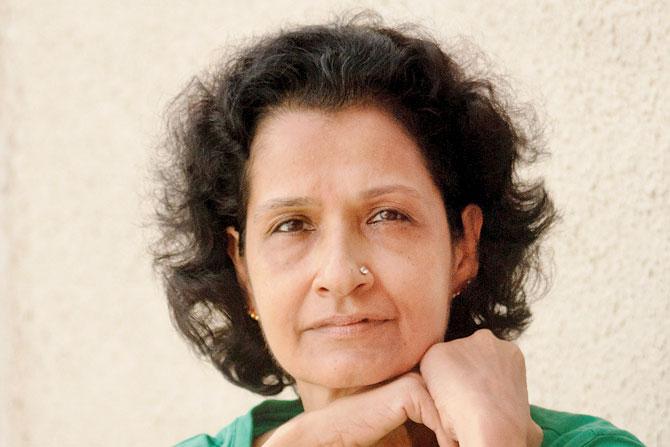Ahead of the Mumbai premiere of her solo act based on sexual assault victim Aruna Shanbaug, Lushin Dubey talks of the girl from Karnataka for whom the world was her oyster

The news of the ghastly act of rape can be unsettling even for a detached reader. For, every time a man surrenders to his basal instincts, the glorious journey of human civilisation pales a little into insignificance. For the survivor herself, the scars run so deep that the world as it existed before the fatal moment ceases to exist.
ADVERTISEMENT
In the case of Aruna Shanbaug, a nurse who was raped and brutally assaulted by a ward boy at Parel's King Edward Memorial Hospital, that trauma lasted until 2015, when 42 years after being reduced to a vegetative state, she breathed her last. But what were the dreams of the intelligent girl from Haldipur in Karnataka, who rose above her poverty to lead a life of dignity in Bombay? Before that helpless image of Shanbaug confined to her hospital bed, the story of a young Aruna fades away.
Looking for the truth
It is this side of Shanbaug that Delhi-based critically acclaimed actor-director Lushin Dubey hopes to bring to life in her solo act, Aruna's Story, to be presented this Friday by Raell Padamsee's ACE Productions, followed by a discussion. The play is based on Aruna's Story by Pinki Virani, journalist and author of five best-selling books, whose pivotal work through the petition she filed in the Supreme Court on behalf of Shanbaug led to the legalisation of passive euthanasia in India.

Pinki Virani
Though only a few shows old, the play has been 10 years in making. "I approached Pinki almost 10 years ago to buy the rights for a play themed on her book. But they had already been sold to someone else, and I was crestfallen. I moved to other subjects and did a play on another one of her books, Bitter Chocolate. Then about two and a half years ago, she informed me that I could explore Aruna's Story, and I jumped at the opportunity," shares Dubey.
The real Aruna
What Dubey was clear about was that she did not want to show the crushed and crumpled physical form of Shanbaug. "What I really wanted to project is the ambitious, sprightly, intelligent, determined girl at her workplace. She used to love listening to, humming and singing Hindi songs, and would blare the radio in her room till 4 in the morning. She was quite a girl," Dubey explains. "She wanted to study abroad and come back with a fancy degree. This is a rendition of her story, and two-thirds down the play, I talk about Pinki and the laws she helped bring about," she continues.
Dubey plays all 18 characters in the play, a feat that she admits requires immense concentration. "The timing has to be right. You are getting in and out of a character all the time. With each change in character, your accent changes," she says, adding that after reading the script, Virani leaves the creative process to her.
"Lushin Dubey is an actor par excellence, she has the ability to make her audience feel they are on-stage with her, a feat multiplied several times over when she is playing more than a dozen characters all-at-once," Virani tells us, drawing from her earlier collaborations with Dubey.
About the status of the safety of women in India, Virani says, "...This cannot be stressed enough — if it's the government's job to ensure that the laws are the best they can be and applied as fast as possible, it is also the government's job — and by this I mean [the job of] central and state governments, the judiciary and the police — to ensure that women are safe to start with, be it on roads, at home, in workplaces. This also means that if, as part of the #MeToo movement it's revealed...that a survivor-woman did complain to her superior and the latter, be it he or she, did nothing, that person is to be held culpable as well."
Dubey feels the theme of the play is analogous to the situation of today's working woman. "So many girls are ambitious. But everywhere you look, it is unsafe for a girl," she says. "If you ask me, women in India are unsafe from the predator man, because for centuries, most women have abdicated their power to men. We have to fight for our rights to not be subjugated and overpowered physically. Because then, what are we left with?"
On: October 12, 7 pm
At: Royal Opera House, Girgaum.
Call: 9320130013
Entry: Rs 500 onwards
Catch up on all the latest Crime, National, International and Hatke news here. Also, download the new mid-day Android and iOS apps to get the latest updates
 Subscribe today by clicking the link and stay updated with the latest news!" Click here!
Subscribe today by clicking the link and stay updated with the latest news!" Click here!






